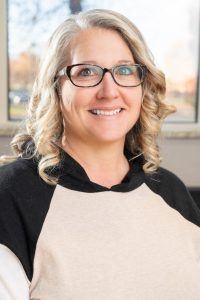April marks Alcohol Awareness Month, a time to reflect on the impact of alcohol misuse and an opportunity to educate, raise awareness and support those affected by alcohol-related issues. Since the COVID-19 pandemic, a sustained spike in drinking has continued to rise with roughly 500 Americans dying from alcohol-related causes each day in 2021, according to a study published by the Centers for Disease Control and Prevention.
Dr. Delaney Smith, Alcohol, Drug and Mental Health Board of Franklin County (ADAMH) System Chief Clinical Officer, said some people turned to drinking as a way to mitigate the anxiety of the pandemic.
“Stress has continued, as has uncertainty in the world, with many people struggling economically and in their relationships,” she said. “People who developed dependence to alcohol continue to struggle, and unfortunately, additional people are becoming addicted to it.”
As alcohol-related deaths surge, Delaney said educational campaigns around alcohol use are essential to try to change the tide of increasing rates of use and death.
“Stigma needs to be addressed so people both recognize when their drinking is becoming problematic and realize that alcohol use disorder is an illness that can be treated,” she said.
Columbus Public Health on preventing, treating alcohol use disorder
Columbus Public Health’s Alcohol & Drug Services (ADS) department is bringing awareness to alcohol-related issues through its ADAMH-funded alcohol use disorder prevention and treatment services.
Samantha Fellows, Prevention Program Manager II for ADS, said prevention education ranges from children to adults, and alcohol awareness is evident at all levels.

“If you're learning to set goals, if you're learning healthy communication, if you have good coping skills, that is what's shown to reduce alcohol and drug use, so focusing on those things is going to have a long-term impact on the other,” she said.
ADAMH partners with Columbus Public Health to support alcohol awareness and treatment.
ADAMH-funded prevention programs include You’re Extra Special (Y.E.S.) – designed for children ages 7-12 whose lives have been affected by parental alcohol and drug abuse – and Substance Abuse General Education (S.A.G.E.) – designed for adolescents and adults as an intensive prevention education intervention for those who are showing use of alcohol and/or drugs but do not meet criteria for a treatment diagnosis.
“We're really excited to be funded through ADAMH, and we feel lucky that we've been given the opportunity to meet the needs of our clients by making sure that we have an evidence-based curriculum,” Samantha said.
On the treatment side, Greg Lanham, Program Manager III of ADS, has noticed a slight spike in clientele alcohol use. In 2023, of the roughly 671 assessments ADS conducted, 66% of clients said alcohol was their primary drug of choice.
“Alcohol is always slightly the majority, but I feel like this number is a little higher than normal,” Greg said. “It’s at the very least staying steady but more than likely increasing.”
In 2022, specifically among male clients, 58% identified alcohol as their primary drug of choice. In 2023, it increased to 67%, Greg said. To combat those increasing numbers, ADS offers walk-in assessments for drug and alcohol use counseling as well as mental health counseling, out-patient group counseling, out-patient individual counseling and intensive outpatient counseling.
ADS also offers a Medication-Assisted Treatment (MAT) program, which ADAMH helps clients partially pay for.
“We have two contract nurse practitioners who prescribe medications for our client population if they’re struggling and need that additional help,” Greg said. “Ideally, clients take both the medication and counseling at the same time because that’s when you get the best outcomes.”
ADAMH also helps cover the cost of a client’s treatment.

“That’s really helpful because there are a lot of people within that gap who either just don’t have Medicaid or they’re not eligible for Medicaid, but they are eligible for the ADAMH subsidy. For a lot of folks, that’s the only reason they’re able to come in and get treatment,” Greg said.
While the number of individuals with alcohol misuse issues is increasing, Greg believes the more people can acknowledge alcohol use disorder as a shared problem, the better they can address it.
“People don’t want to feel isolated with what they’re going through, so I think the more people open up about their stories, their struggles, the more alcohol use can become destigmatized and the more likely it is that people will seek help,” Greg said.
